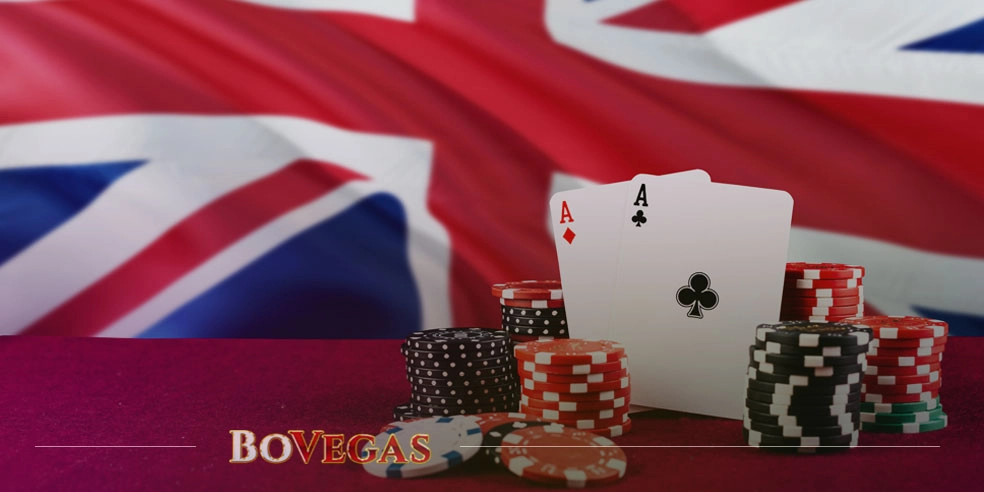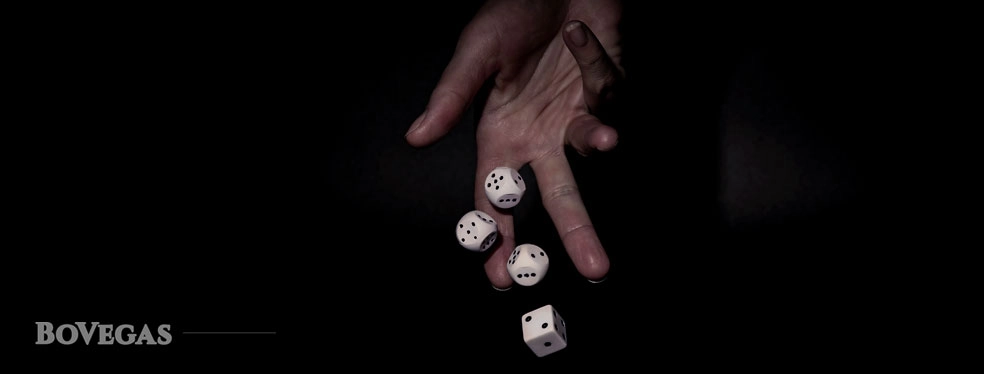



Nowadays, the UK is known to be a country with some of the most effective gambling regulations in the world. The UK Gambling Commission keeps a wary eye on any operators that have been licensed to offer their services within the country. However, this doesn’t mean that gaming in the UK is going through a hard period. Actually, things are going pretty well for most law-abiding UK-based providers! Over the centuries, the British have seen gaming become a big part of their national traditions; so there’s currently a big community of players who are actively visiting bingo halls, buying lottery tickets, betting on sports events and of course, playing in online casinos! So let’s start our little historical excursion here, to find out where it all began.
The simplest forms of betting first became popular in the territory of modern-day Great Britain, right after the Roman invasion! The common people used to enjoy games like dice and knucklebones, while the rich could easily afford to bet on various events, like horse racing. For many consecutive centuries, gaming had existed as an unofficial social sphere, until the big turning point that finally happened in the 16th century. James IV of Scotland was an avid horse racing fan and in the early 1500s, this was turned into a national sport. Half a century later, in 1569 the lottery was officially legalized by Queen Elizabeth the Second. In this way, the lottery and racing have evolved into two of the most popular betting activities in the country as a whole.
Over the following centuries, lotteries were successfully established for funding various public initiatives. By the beginning of the 18th century numerous Gaming Houses were opened all across the country. However, the legal status of gaming in the UK has been on shaky ground for a long time – gambling was repeatedly legalized and banned, multiple times throughout the 18th and 20th centuries; until 1961, when the Betting and Gaming Act was finally passed. This document has become the legal basis of all the internal gaming regulations that currently exist, and it was also the one that made Betting Shops possible in practice.
During the first year after the Betting and Gaming Act was passed, around 10,000 Betting Shops were opened all across the UK. The demand for an official betting provider was huge, and those shops really were immensely successful among UK gamers. However, early Betting Shops still had to follow many restrictions, as defined by the Betting Act – there were many limitations for the types of bet people could make and the events they could bet on. And apart from that the new legislation has set some very strict conditions defining the interior and exterior of those places. Betting Shops were not allowed to serve people with any other services like drinks or food and were also not allowed to use decorations of any advertisements to make the interior look more attractive. In other words, from the very beginning UK Betting Shops used to look very, very dull.

As the years went by, it became obvious to the Gambling Commission that the rigorous restrictions that were designed to make Betting Shops not so appealing to the general public were hardly making them any less popular, which has been proved by official statistics gathered by the gaming officials. That’s why in 1986, the government decided to let some fresh air in and to lose some of those harsh restrictions! So starting from the mid-80s, Betting Shops in the UK were allowed to add some fancy decor to the somewhat grim interiors of the time, and to start selling hot drinks; all this, of course, was very much appreciated by the regular gambling crowd! Also, Betting Shops won the right to place TVs and monitors, so the players could watch the horse racing live without leaving the place. To provide some extra comfort, recreational areas featuring comfortable chairs or couches were also allowed.
However, not all the changes that were made were that great. According to the 1961 Betting and Gambling act all the players were obliged to pay a 10% tax for any win. But by 1986, the UK gaming industry had grown bigger, and some of the providers managed to grow into powerful county-wide corporations. Thereby, due to popular demand and with a little help from the most influential providers, the individual bet tax was abolished. But there were still many ways for the government to gain annual profits from the multi-million gaming industry, and it pretty much looked like a win-win situation for all parties concerned.
Another good year for UK betting shops was 1992. This was the year when the UK Football League was held for the first time and betting on internal soccer events became a new big thing for players. Horse racing was a profitable business for smaller betting operators; but the gross turnover was still not so big, if we compare it to the betting points that used to operate on the ancient hippodromes. But when it comes to football, the fan base seems to be much wider, and the demographics are also more fluid. In other words, this opportunity became a real milestone for local betting points.
However, every good story must come to an end. No, don’t worry: we don’t mean all the betting shops were actually shut down! Actually, there are about 9,000 of them operating in various parts of the United Kingdom. But could a successful concept lose its efficiency just in a decade? Was this caused by a new unfavorable change in UK gambling legislation, or was this decrease caused by a lack of interest among the younger generation? Well as it happens, none of those answers is actually right!
Betting Shops ran out of fashion purely because the concept ran its course, and lots of other alternatives emerged on the market. Of course, we are talking about online casinos, which just started to gain popularity in the early 00s. During the following decade, many of the least successful small providers ran out of business, pushed back by the rapidly growing market of online casinos.
As we already mentioned above, there are about 9,000 betting shops in the UK at the moment. And even though this number looks small compared to the 70s, they are still pretty popular. Of course, many of those shops are now owned by bigger casino brands, most of which are online casinos investing good money in renovation and maintenance making present-day Betting Shops as comfortable and cozy as possible, so that the good old tradition will be preserved, in order to serve as a great recreational venue for those who still like making bets in real life.

With the growing popularity, in recent years, of online casino-style games, one can’t help but wonder if the online version of bingo offers any advantages (besides playing from the comfort of your home). Does online bingo differ from playing at a bingo hall? Here’s a brief review of the pros and cons that online bingo […]
Roulette is among the most popular table games at all casinos, both traditional and virtual. It has been a crucial part of the gambling industry for ages. As it turns out, roulette dates back to the 17th century. The famous mathematician and physicist, Blaise Pascal, originated this casino game. He accidentally developed a roulette wheel […]
Table games may bring you from rags to riches overnight. Big gambling tournaments and posh casinos just can’t exist without so-called “whales,” who play hard for the highest stakes possible! Wagering millions is not a problem for such players; however, there’s still the chance Lady Luck is going to sneer at them! But gambling wouldn’t […]
The reliability of the payment system is a very important criterion when deciding on a venue to play, given you’re actually entrusting them with your money! But if you’re not just playing for fun, it’s crucial for you to choose an establishment that actually provides you with a reliable banking method. Reputable casinos should offer […]
If you love gambling and have been to a land-based casino at least once, you may have thought about becoming a dealer. Playing the same game but from the opposite side, while communicating with other players, sounds like a dream job, right? A dealer is a straightforward job, and you will be the heart and […]
On Monday September 14, MGM announced that it plans to open its first smoke-free casino at the end of September, when Park MGM will finally reopen its venues to players and tourists. The resort comprises around 2,990 rooms and various restaurants, and it’s set to be reopened on September 30. The venue has been closed […]
Online gambling has undoubtedly taken a place of true supremacy over the casino industry during the pandemic. And the reason for that is quite clear: online casinos are more accessible, and you can always count on some encouragement from the casino administration to help you boost your game. However, this digital revolution has only been […]
The large selection of online gambling sites out there can make players somewhat puzzled, and give them a feeling of uncertainty about making the right choice of casino. Each online gambling venue offers its own conditions, games, and various bonuses, of course; but the most important thing is the reliability of the casino and the […]